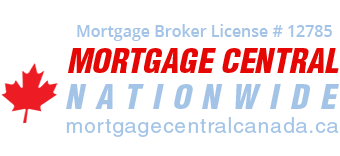Bank of Canada Expected to Make No Changes on Interest Rates
It looks like the central bank is not going to announce changes in interest rates soon, as can be inferred by economists regarding the matter.
Senior deputy governor Carolyn Wilkins and governor Stephen Poloz of Bank of Canada will provide an update soon; but experts are not expecting them to give an update on the central bank’s outlook that may hint on a future interest hike. This is in view of the cooling Canadian economy in recent months.
Economists Concur
Economists agree that the Bank of Canada is not likely to announce a drastic change anytime soon, and that any changes will be very small. The key target for overnight rate is currently at 1%, already boosted twice this year by 0.25% in July and again in September.
Nomura global foreign exchange analyst Peter Dragicevich shared in a recent research note that they are expecting that the Bank of Canada will give gradually increasing interest rates based on the central bank’s outlook.
Impressive Economic Performance
The strong growth in the Canadian economy is the background by which the bank’s 2 rate increases took place. It was ended in July after 8 strong months of increasing gross domestic product. The latest update was released on October 31 by Statistics Canada.
Economist Benjamin Reitzes of BMO Capital Markets said that there are likely to be changes to the growth outlook in the bank’s monetary policy report because the GDP for the second quarter was way above what the bank expected.
Reitzes shared in a recent commentary that changes in the growth outlook may result to 2017 revised by as much as 3.1%, a figure that will match the best pace in the past 12 years. He added that the GDP for the third quarter is likely to hold steady at 2% and that the same is expected for the last 3 months of 2017.
No Patterns and No Scripts
Bank of Canada governor Stephen Poloz said in a recent speech that the central bank won’t follow a script when it comes to rate hikes, even in view of the Canadian economy’s standing this year. He further said that what the bank will do is just to pay close attention to data changes in the economy to determine possible future changes in interest rate policy. He added too that monetary policy will almost always be data dependent and can swing in either direction with the data.
It should be noted that the bank is equipped to ascertain how things will turn out. They can model how today’s stronger exchange rate and interest rate may impact those with large debts to slow down consumption and housing.
Other factors may affect economic growth. Ontario’s new minimum wage might have a significant impact on inflation rates and the new mortgage rules might switch things around.
Want to know if these recent turn of events can affect your eligibility for getting a home equity loan or a second mortgage? Contact us today so we can talk about this with you.



